Like the Chris Watts case, when I found out Oscar Pistorius had shot someone to death – four times – through a closed [locked] door, I thought it was an open and shut case. I paid attention to the headlines, but I wouldn’t say I dropped everything to focus on the case. At that stage I was a professional freelance photojournalist [full-time]. Most of my work involved writing for magazines and occasionally doing shoots for corporates like Mercedes Benz and the Square Kilometer Array.
The day after the murder I wrote this post on Facebook.
Early on there was pushback. “Don’t speculate if you weren’t there.” “It’s not our place to judge.” “Leave it to the lawyers.” “Only God and Oscar know what really happened.”
On the first day Oscar appeared there was pandemonium in court. It was a media circus, and although they didn’t know it then, Oscar himself was the ringmaster.
09:37 – As soon as Oscar Pistorius starts to enter court, photographers start shooting. Magistrate protests. – @karynmaughan. @AlexCrawfordSky tweets that Pistorius is wearing a dark blue suit.
09:48 – Nel: Pistorius shot an unarmed innocent woman…she was unarmed and inside a toilet. Pistorius sobs, his head in his hands – @karynmaughan
09:53 – Nel: “The deceased arrived between 5 and 6pm [with an] overnight bag and cosmetic bag. The deceased was shot three times while [in] the toilet.”
09:55 – Pistorius breaks down in tears in court, Sky News reports.
10:25 – Roux suggests that Pistorius broke toilet door to get to Reeva, to help not harm her.
10:26 – Pistorius breaks down uncontrollably now as his defence suggests he did not know it was Reeva behind [the] bathroom door, tweets @AlexCrawfordSky.
10:27 – Roux: We say it can never, ever be a schedule six. It’s not even a murder.
10:33 – Pistorius blows into his hankie. He’s been crying throughout the hearing. He looks exhausted, says @karynmaughan.
12:15 – Nair: I have received written and oral argument. Nel is relying on objective facts…
12:16 – Pistorius wipes his eyes with a tissue, seems to be trying hard not to sob audibly. His brother leans forward as if to touch him but too far – @Simmoa
12:22 – Pistorius looks up straight to the magistrate as he reads his judgment on the seriousness of the offence, says @AldrinSampear.
12:26 – Nair: At this point in time, I cannot rule out premeditation. For the purposes of bail – we go Schedule 6.
12:27 – Pistorius reacts with more tears then leaves court for another break, tweets @BBCAndrewH.
12:31 – David Smith tweets: “Pistorius family grouped in small circle, weeping, arms around each other. Cameras clicking and filming from every angle.”
12:32 – Pistorius family and friends hold an impromptu prayer meeting after Nair ruling, says Karyn Maughan.
13:48 Pistorius: I fail to understand how I could be charged with murder let alone premeditated murder as I did not intend to kill my girlfriend.
13:50 – Pistorius is leaning forward and sobbing. His brother Carl has his hand on his shoulder, tweets Barry Bateman.
13:51 – Oscar Pistorius: I deny that I committed murder in the strongest point. Even though I don’t have to, I want to deal with these allegations.
13:54 – “Reeva had bought me a present for Valentine’s Day. We were deeply in love.” Oscar sobs.
13:55 – Karyn Maughan tweets “Nair interrupts court: my compassion as a human being doesn’t allow me to continue this.”
13:56 – Magistrate urges Pistorius to compose himself and listen. Says he will give him a few minutes.
13:56 “Nair is going to give him 2 minutes to speak to his family, to regain his composure“, tweets Barry Bateman.
13:57 – Barry Bateman tweets: “Nair tells Oscar he needs to concentrate. We adjourn for a few minutes. Nair asks no photos be taken.”14:49 – Nel: I will call investigating officer Hilton Botha to reply to Oscar Pistorius statement.
14:55 – [Pistorius] stands, staring straight ahead, eyes narrowed as magistrate gathers his papers. Nair waits for him to leave so cameras can’t [photograph] him.
15:11 – Media behaving like a mob outside court, swarming to get comment. Crushed – @MandyWiener
I remember well tweets coming through exclaiming, as if the Earth was shaking, that “Oscar is crying”, which would result in the entire show shutting down and the court decamping while Oscar – like a deity – recovered himself. The same shitshow would later repeat itself during the criminal trial, a trial Oscar said he didn’t understand why there was even a need for because it was all an accident.
Following the first day of the bail hearing, the prosecutor’s star witness, Detective Hilton Botha, was shortly booted out of the trial. His crime was he’d shot at the tires of a taxi, and since there were several people inside, he faced multiple charges of attempted murder.

It sounded bad, a lot worse than it really was [just like Oscar’s sobbing and retching in court], but the defense won their gambit and Botha’s testimony had been thrown out.
Score:
Prosecution: 0
Defense: 1
Some of the best, and most incisive writing by far on this case was an interview by Vanity Fair with the former lead investigator. The bad press Botha received meant he lost his job and was effectively run out of town.

How did I start writing about this particular trial? It didn’t start by focusing on the crime or the criminal, but the victim, and I guess it started for me on Facebook. Since I was a photographer, and since Reeva Steenkamp was a model [sometimes featuring in magazines like FHM and Heat], we were friends on Facebook.
It started by looking on her wall to see her final post [ironically, it was a post to thank another photographer for his work].

Later I would return, and read more about what she said was going on in her life. Reeva’s penultimate post was about gender violence and standing up and speaking out against crime.

As time went by, I waited for Reeva’s story to be told. Each day the headlines featured wall to wall coverage of Oscar, and it was always about Oscar. But I wanted to know about Reeva. Who was she? What was her story? What happened to her?
As I became more curious, I began to go further and further into Reeva’s timeline on Facebook. This curiosity had no agenda. I didn’t intend to write or cover anything, I was simply interested in who the person that had been shot dead had once been. The best answers to my questions, I soon found, were coming from her.
As my knowledge and insight expanded, the media managed to maintain a protracted silence about Reeva.
I guess that’s when my journalistic instincts, and my thirst for justice, kicked in.
My coverage of the Oscar trial started off as a magazine article, and started off not focusing on the man everyone was reporting on breathlessly, but rather the woman he shot. It was about Reeva. And ironically, that magazine article never saw the light of day.
There’s a narrative around that article. It ended up being 12 000 words which I thought could be cut up and printed in 4 parts. I had early interest in South Africa’s largest tabloid magazine, and they assured me they wanted to use the piece, and then they started to drag their feet and make excuses. They said the hype had passed, and suggested holding the article over until Reeva’s birthday in August. When her birthday came they passed on the article. They did, however, cover many of the aspects mentioned in the article bit by bit [including a cancer scare, a portentous picture Reeva painted as a child, and a prior incident she’d experienced with her mother when criminals broke into her home. The tabloid told me they covered this independently after I sent them the research.
While the article on Reeva was in magazine limbo for months, I went on with other work but I started to pay more attention to Oscar. I wasn’t really interested in him so much as a person, I simply wasn’t starstruck by him at all, and as a sportsman myself, I didn’t think his claim to fame [a double amputee competing against able-bodied athletes] was particularly authentic.
So when I wrote about Oscar for the first time in early March 2013 [two weeks after the murder], it was for a financial magazine, and it had to do with Oscar’s spectacular failure to deliver as a brand ambassador. Early on I recognized him not as a hero but as a performer. An actor. A showman. And a failed one at that.
I believe I was also one of the first to recognize Oscar’s emotional behavior in court [and later on television] as a sly attempt and a ploy to influence the outcome. In court, his tone of voice was often high-pitched when he testified, in keeping with his ridiculous claim that the victim [Reeva] had never screamed, and that what five different neighbors heard wasn’t her screaming in terror, but him screaming in terror [because he’d mistaken her for a burglar].
If it was a ploy, it worked. Oscar’s play for sympathy initially got him off the murder charge. The female judge, who had something of a disability herself, found Oscar guilty of culpable homicide [manslaughter] and sentenced him to five years in jail [effectively 10 months].
It was at this moment, when the first trial was complete, that I realized my sense of mission in true crime. In true crime there is seldom an open-and-shut case, and this is especially rare in high-profile true crime. The Chris Watts case is a very rare exception of a case that was wrapped up in super quick time, and a nice bow tied around it.
In true crime, I’ve learnt, things are seldom what they seem – not only the criminals themselves, but the crime scene, the appearance of things including and especially in the media, and the way things are spun in court [by both counsels].
In the end my magazine article on Reeva Steenkamp was recycled from 12 000 words down to just 2000, and published in Marie Claire magazine.
As crazy as this sounds, about a year after writing the original 12 000 word piece, I sent an email to another bestselling author [I won’t say his name]. That email was dated April 14th, 2014, and I still have it. I sent this author, who I’d heard was writing a book on the Oscar trial, all my research and was ready to tip my hat and head off in the sunset back to the world of freelance photojournalism.
In June, I mentioned somewhere on social media that this author [I mentioned his name] was using my work and I was quickly contacted by him by email, rebuked and admonished. I sheepishly apologized, letting him know the offending message was viewed – ultimately – only 38 times.
And then I had a change of heart.
I met with a fellow writer – of crime fiction as it turned out – and told him as a sidenote about the fate of my article on Reeva Steenkamp. He suggested I publish it on Amazon. It wasn’t a route I wanted to go. “So you’re just going to shelve it, put it in a drawer and leave it.” That was what I intended to do. Meanwhile the criminal trial finally got going and the silence on Reeva – from her friends, from the fashion and magazine industry, from journalists and photographers, and even from her on family – continued.
And then I thought, fuck it, I don’t want to be part of that silence. When I published Reeva in her own Words on Amazon on June 6, 2014, I fully expected it to disappear into a digital drawer. But then it didn’t. Instead it sold each day, and for 200 straight days afterwards.
The success of the book along with the message that was going out prompted me to publish other research I’d accumulated but, for various reasons, had been turned down by a slew of newspapers. It didn’t take a lot of work to simply package these articles [written, polished and edited] into a single document. That was published the very next day, and Recidivist Acts too was an immediate success.
The journalist in me recognized that the readership was getting something from me that they weren’t getting anywhere else. I’d simply never considered writing for Amazon the way I wrote for magazine editors.
And so, after the first two “books” were published [neither of which were intended as books, but rather started life as failed print media pitches and submissions], I decided to write what I really had to say about the case. I studied law in my university days, and I’d been keeping an eye on the legal proceedings between ongoing journalism jobs. I published Resurrection before the verdict of the trial came out. Many found this pre-empting vulgar and offensive. It was “too early” they complained, for a book to be out. Meanwhile, others quietly bought it and read it.
I was so effected by Reeva’s story [and still am] that I elected to put her face on every cover, and use the letters R and S [for Reeva Steenkamp] in every title I used.
Resurrection was my first attempt to decipher motive in true crime. Motive was completely missing in the media narrative at that point, and ironically, from the trial narrative as well. The prosecution simply never fielded one, and the judge – rightly – remarked on this. Technically a motive isn’t necessary, it doesn’t have to be proved in a criminal case, just intent. But this was probably the biggest failure of the otherwise savvy prosecutor. If it was a premeditated murder, at least offer an idea why you think it happened.
Since no one was having that conversation, I was.
When I wrote Revelations, I wanted to discuss another issue that had been left out of the court narrative. The timeline of events. The method of the murder. Incredibly, neither counsel had provided the court with a timeline [at that point], and the prosecution was nitpicking on evidence rather than providing a scenario for how the murder actually played out. While the attempt to return several times to key parts of testimony to catch the accused off-balance made sense, they also had the undesired effect of confusing the timeline [and, as it turned out, the judge].
In October I contacted the bestselling author I mentioned earlier and gave him instructions that he no longer had permission to use any of my research. He said this would be possible but problematic, and asked if I also wanted my name removed from his list of acknowledgements. I said I did.
[The author later published a book which amounted to apologia, a bogus sympathy narrative on Oscar written with the approval, and input – it seemed – of Oscar’s family. The author’s way of addressing what Oscar was thinking – his motive – was a cop out, something unknown and unknowable. Ironically that book today has fewer reviews than the research – published as a book – that I’d given to him. Currently my books on the case are also ranked far higher on Amazon than his book].
The South African media, with rare exceptions, mostly ignored my coverage. In one instance, I was invited on a radio show not to have a serious discussion on my research, but as a comedic ploy, where a top detective was invited to poke holes into my amateur research for the amusement of the morning show radio audience. The comedy aspect didn’t quite play out as planned, for the host.
Ironically, we [the celebrity detective and I] ended up agreeing on a vital aspect of the case – that Reeva was shot either while she was on her phone or about to make a call. I brought up this aspect and when the host asked Piet Byleveld to comment, he said it made sense. What I didn’t say is that it’s also possible Reeva had Oscar’s phone in the cubicle that Valentine’s Day morning when she was shot, and that’s the reason he started bashing down the door with the bat, and then reverted to shooting through the door.
Then I started sitting in on the trial in person, rather than watching it on television. I sat in as an accredited journalist, and reported on the sentencing trial, the appeal and the verdict of the SCA. That’s yours truly [see below] in the red and blue beanie, participating in the media scrum.

I also traveled to meet Reeva’s parents in person, and communicated a few times with her cousin [who also testified at trial].
At one stage, after the Supreme Court of Appeal sent the case back to the judge for a review of sentence, I had a brief meeting with the prosecutor, and we were going to have a witness I’d found and interviewed, testify in aggravation. The prosecutor contacted the witness, warned her of being targeted in the press, and she subsequently decided not to testify.
Oscar was subsequently sentenced to six years in jail, a sentence the new prosecutor described in November 2017 as shockingly light. These were the same words the original prosecutor used after the initial sentence of five years was handed down in November 2014.
As the trial dragged on, media interest waned. Finally, when the original fuck up was finally overturned and the Oscar was found guilty of murder [and sentenced to the minimum of 15 years], the media coverage was gone.
I was there on the final court day and no one else was. Not the family of the killer, not the family of the victim. Not even the lawyers. Instead of the large legal teams, a skeletal crew representing them attended. The biggest, most high-profile case in the country’s history ended not with a bang, not with a celebration for the triumph of justice, but a whimper.

I learned valuable lessons during the Oscar trial. I learned how justice isn’t a given even in “open and shut” cases. I learned how dumb and biased the media can be. I saw the powerful impact of PR to set up a bogus narrative while drowning out the victim, and rendering her completely invisible. I realized just how clueless vast swathes of the public can be. Even with bumper to bumper coverage, most people watching the case remained ignorant or misinformed, which makes them easy to manipulate. And they were. Many, like the judge, fell for the performance and lost sight of the obvious, let alone the letter of the law.
I learned how important motive, a timeline, and relationship dynamics are, even – and especially – when no one is talking about these, including the lawyers arguing the case.
Most important, through Reeva, I learned to see beyond the cardboard cutouts, and to see these people as people. People as flesh and blood, admirable at times, beautiful sometimes, but also fallible. People not so different, after all, from you and I.
Through Reeva I saw the way to truly understand true crime is through the interiority of the people involved, and 14 books later, I’ve taken on the mantle of true crime full time. Today I write books for a living. Instead of magazine articles, I write mostly about high-profile cases, but sometimes I depart into other areas, like mountain climbing, art, travel, my late mother, or even fiction.
Since I started writing books five years ago, in mid-2014, I’ve had some success. DOUBT, covering the Madeleine McCann case, went up to #2 on Britain’s competitive true crime bestseller charts in 2017, during the ten year anniversary period of her disappearance.
I’ve also had some of my books reviewed [negatively of course] by the “exonerated” defendants themselves. The international media have paid more attention to my work [you know what they say about a prophet in his own hometown] especially of the JonBenet Ramsey case. Given the massive coverage this colossus of a case garnered in America and worldwide, it was a real test whether I could add anything to that narrative. I think I did.
But it all started with her, with Reeva Steenkamp. To be honest, I still don’t feel her story has been done justice.
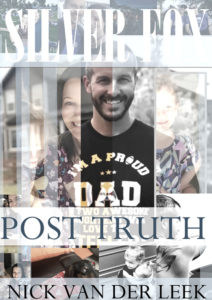
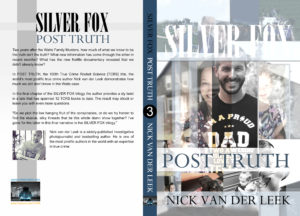

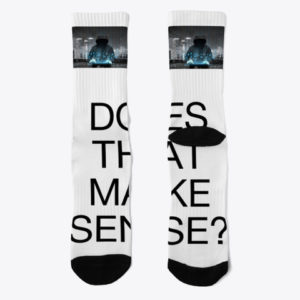

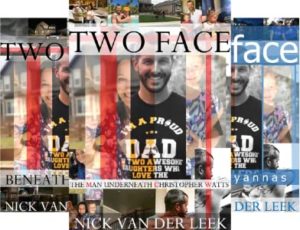

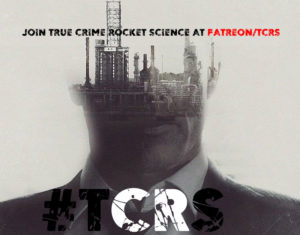

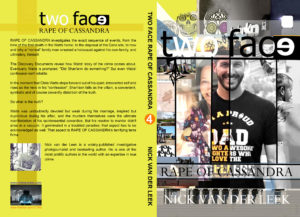
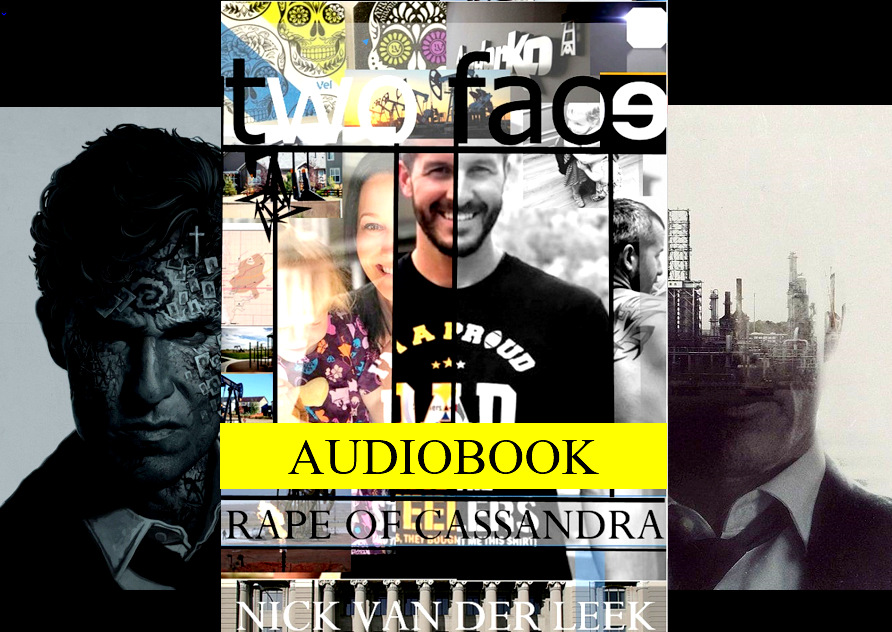
Recent Comments